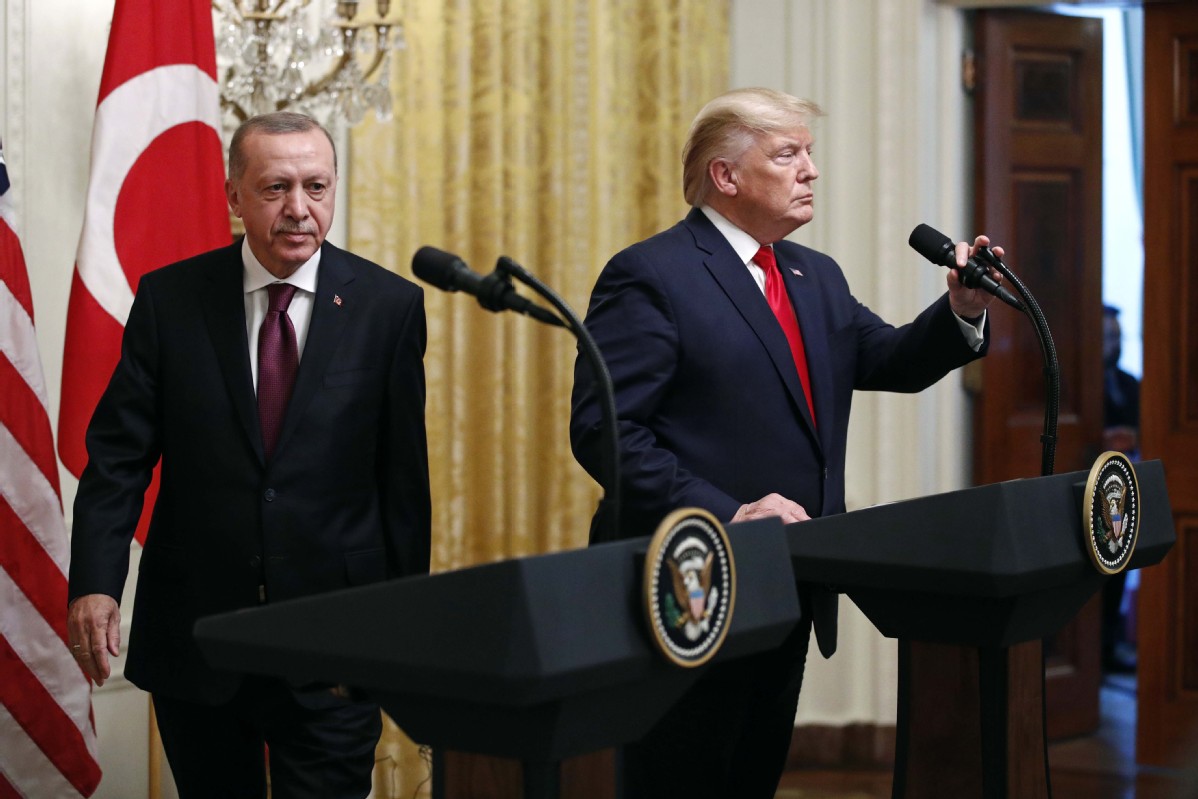Consensus eludes Trump, Erdogan
By LIU XUAN | China Daily | Updated: 2019-11-15 09:34

US President Donald Trump and visiting Turkish President Recep Tayyip Erdogan failed to arrive at a consensus on security issues at a meeting on Wednesday.
However, even as major differences remain, relations between the two countries are seen as resilient and likely to pick up after recent strains.
After the much-anticipated meeting at the White House to address a crisis in the bilateral relationship, Trump said he was "a great fan" of the Turkish leader and that they had a "productive" encounter.
But they fell short of explaining in concrete terms how they would overcome the mounting differences on numerous issues, from Erdogan's incursion in Syria against the United States' Kurdish allies to Turkey's purchase of the Russian S-400 missile defense system.
In a joint news conference, Trump said Turkey's purchase of the missile system from Russia "creates some very serious challenges".
"We are talking about it constantly, we talked about it today, we're talking about it in the future," Trump said, indicating that the United States had failed to persuade Turkey-a member of the US-led NATO alliance-to drop its purchase of the system.
Erdogan said the two countries could overcome their differences only through dialogue. "We are in agreement to further Turkish-American ties on a healthy ground. We have agreed to open a new page in our relationship," he said.
Relations between the US and Turkey have been under severe strain since October when Erdogan ordered the offensive against Kurds in northern Syria, following Trump's announcement that US troops would be withdrawn from there.
Trump threatened to impose sanctions if Turkey went too far in its campaign against the Kurds and caused excessive bloodshed.
However, the ties between the US and Turkey have never been broken over the years, said Zhang Bo, a researcher from the Institute of West-Asian and African Studies of Chinese Academy of Social Sciences.
Zhang said the two countries have maintained what he characterized as a relationship of mutual use.
"Under Trump's 'America First' policy, the US wants its Middle East allies, including Turkey, to shoulder more responsibility in anti-terrorism actions so that the US can step away from the battlefield. Thus, Trump will keep drawing Turkey to his side," he said.
In turn, Zhang said, Turkey relies on Washington's support to deal with the tough issues the country is facing, such as the masses of Syrian refugees it is hosting, the Kurdish presence on the Syrian border and anti-terrorism operations.
Xinhua and Reuters contributed to this story.
























